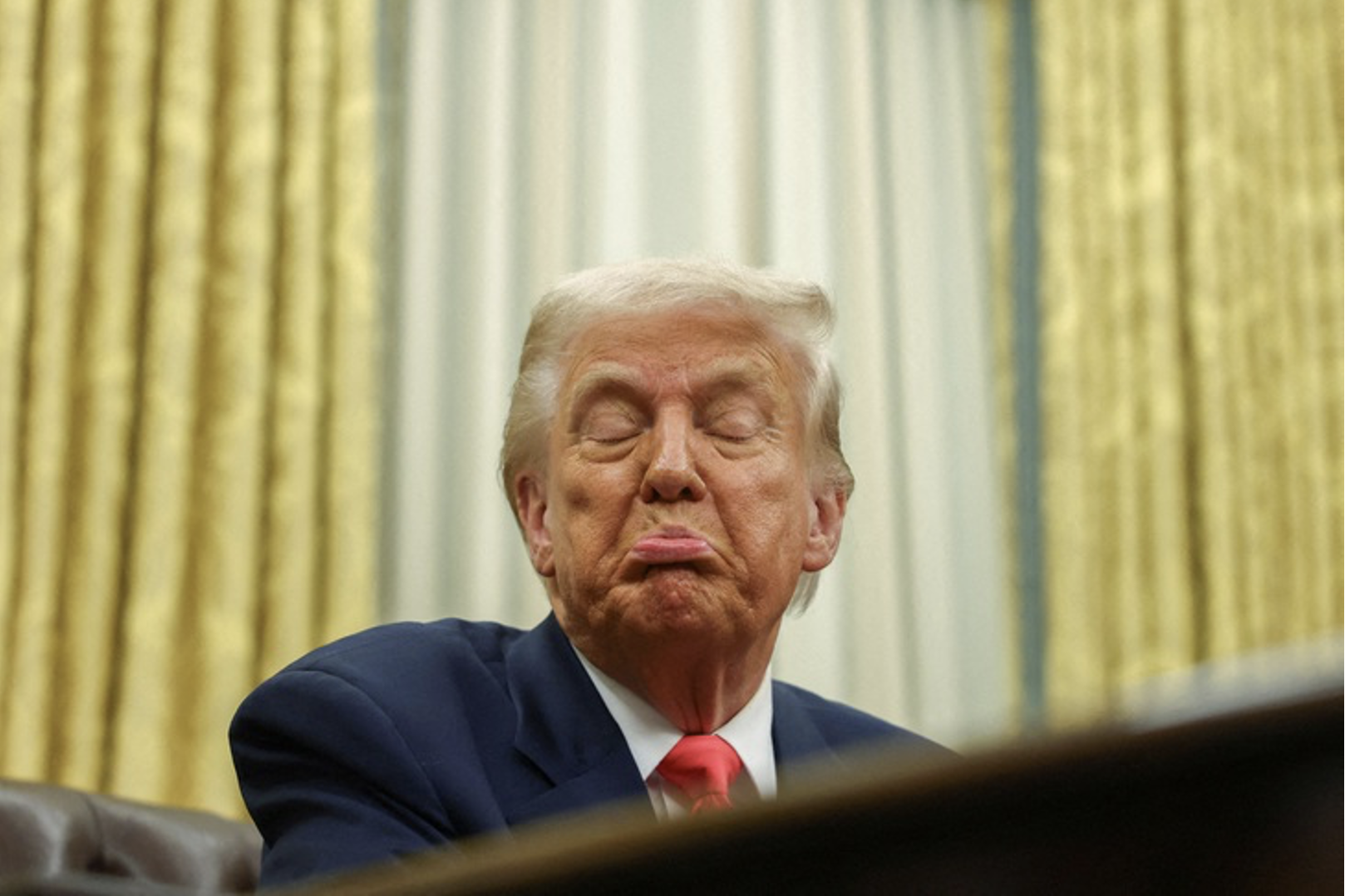Tòa án Tối cao Mỹ được kêu gọi chặn thuế của Trump trước phiên điều trần tháng 11
Cho rằng biện pháp này là bất hợp pháp và gây ra gánh nặng thuế chưa từng có trị giá 3.000 tỷ USD đối với người dân Mỹ.

Tòa án Tối cao sẽ tiến hành phiên điều trần vào ngày 5 tháng 11 để xác định liệu tổng thống có vượt quá thẩm quyền của mình khi áp dụng các mức thuế theo Đạo luật Quyền lực Kinh tế Khẩn cấp Quốc tế hay không. Ảnh: REUTERS
Tháng trước, Tòa án Tối cao đã đồng ý xem xét gấp tính hợp pháp của chính sách thuế quan này, sau khi tòa phúc thẩm tuyên bố các mức thuế là trái luật. Phiên điều trần chính thức được ấn định vào ngày 5 tháng 11.
Trong tháng 9, tòa yêu cầu các bên liên quan trong vụ kiện hợp nhất nộp bản tóm tắt bằng văn bản trước khi diễn ra điều trần. Các lập luận gửi tòa hôm thứ Hai được trình bày trong hai bản phản hồi riêng biệt, nhằm phản bác lập luận của chính phủ trong bản đệ trình ngày 19 tháng 9.
Dù khác nhau về cách trình bày, cả hai bản phản hồi đều nhấn mạnh một quan điểm chung: quyền áp thuế thuộc về Quốc hội, chứ không phải là công cụ mà Tổng thống có thể sử dụng tùy ý thông qua tuyên bố tình trạng khẩn cấp.
Nguyên đơn cho rằng Tổng thống Trump đã vượt quá thẩm quyền theo IEEPA, vốn chỉ cho phép phong tỏa hoặc đóng băng tài sản của các thực thể nước ngoài, chứ không trao quyền đánh thuế toàn cầu.
“IEEPA không trao cho Tổng thống quyền lực đơn phương rộng lớn như vậy. Thực tế, đạo luật này hoàn toàn không cấp quyền đánh thuế hoặc áp thuế quan,” trích nội dung bản đệ trình của nhóm nguyên đơn trong vụ Learning Resources, Inc. et al v. Trump. Tòa án sau đó đã gộp vụ này với vụ V.O.S. Selections, Inc. et al v. Trump để xét xử chung.
Cả hai lập luận đều cho rằng cách chính phủ diễn giải các động từ trong đạo luật như “điều tra”, “phong tỏa” hay “điều chỉnh” là sai lệch, vì những thuật ngữ này chỉ áp dụng cho các biện pháp cấm vận, phong tỏa tài sản hoặc trừng phạt kinh tế, chứ không cho phép áp thuế.
Bản đệ trình của Learning Resources còn liên hệ vấn đề này với nguyên tắc phân chia quyền lực giữa Tổng thống và Quốc hội. “Không có động từ nào liên quan đến ‘điều chỉnh’ thể hiện quyền đánh thuế,” bản đệ trình nêu rõ. “Cũng không có bằng chứng nào trong lịch sử lập pháp của IEEPA hay Đạo luật Giao dịch với Kẻ thù (TWEA) cho thấy Quốc hội từng có ý định trao cho Tổng thống quyền áp thuế không giới hạn.”
Phía V.O.S. Selections cũng phản đối lập luận của chính quyền Trump rằng thâm hụt thương mại kéo dài là “mối đe dọa bất thường và nghiêm trọng” đủ để kích hoạt quyền áp thuế theo IEEPA.
“Đó là một tuyên bố quyền lực đáng kinh ngạc, và nếu đúng, cần phải có sự ủy quyền rõ ràng từ Quốc hội — nếu Hiến pháp cho phép điều đó,” bản đệ trình viết. “Tuy nhiên, đạo luật mà Tổng thống viện dẫn — IEEPA — hoàn toàn không nhắc đến thuế quan, và trong suốt 50 năm qua, chưa từng có Tổng thống nào sử dụng nó cho mục đích này.”
Bản đệ trình của Learning Resources cảnh báo rằng việc áp thuế như vậy có thể khiến nhiều doanh nghiệp nhỏ của Mỹ phá sản, và khiến người dân phải chịu thêm ít nhất 1.000 USD mỗi năm.
“Tổng thống đã liên tục tăng, giảm, tạm dừng và tái áp thuế vì nhiều lý do khác nhau. Theo chính số liệu của chính phủ, các biện pháp này tương đương một khoản tăng thuế 3.000 tỷ USD đối với người dân Mỹ trong thập kỷ tới,” bản đệ trình nêu rõ.
Phía V.O.S. cho biết các mức thuế này ảnh hưởng nghiêm trọng đến doanh nghiệp nhỏ, vốn phụ thuộc vào hàng hóa sản xuất hiệu quả ở nước ngoài. “Các mức thuế thay đổi liên tục làm tăng chi phí, gián đoạn chuỗi cung ứng, gây khó khăn trong kế hoạch kinh doanh và hoàn toàn đổ gánh nặng pháp lý lên vai doanh nghiệp Mỹ, chứ không phải các nhà sản xuất hay chính phủ nước ngoài,” nhóm nguyên đơn khẳng định.
Bất chấp sự khác biệt trong giọng điệu và trọng tâm lập luận, cả hai bên đều thống nhất về phán quyết mong muốn:
“Tòa án nên tuyên bố các mức thuế theo IEEPA là trái luật, và chấm dứt gánh nặng thuế chưa từng có mà người dân Mỹ đang phải gánh chịu,” bản đệ trình của Learning Resources kết luận.




